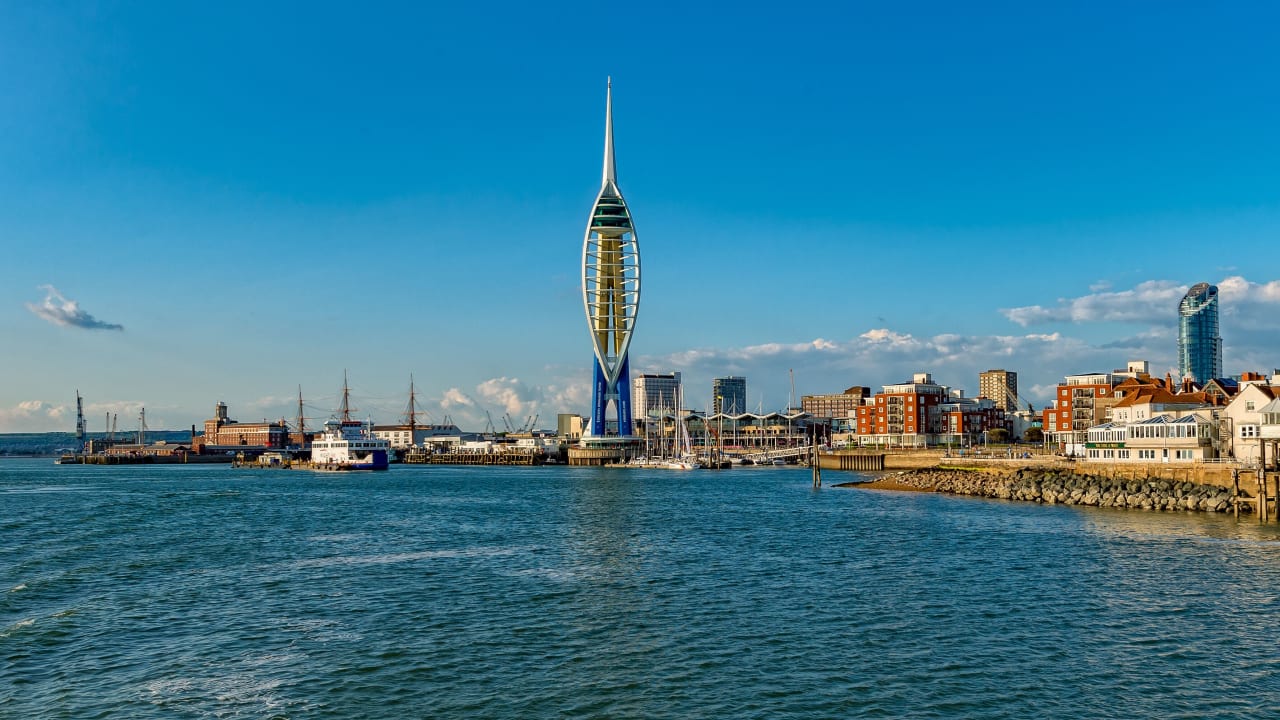
MA International Relations
University of Portsmouth

Key Information
Campus location
Southsea, United Kingdom
Languages
English
Study format
On-Campus
Duration
1 - 2 year
Pace
Full time, Part time
Tuition fees
GBP 9,400 / per year *
Application deadline
Request info
Earliest start date
Request info
* for full time: £9,400, part time: £4,700 per year for UK/Channel Islands and Isle of Man students/EU residents I Full time: £16,200 Part time: £8,100 per year : international students
Scholarships
Explore scholarship opportunities to help fund your studies
Introduction
If you're interested in national and international organisations, conflict and uncertainty, and how they are shaping contemporary international relations, our MA in International Relations will develop your grasp of the central issues.
You'll study issues related to civil society and security, such as weapons of mass destruction (WMD), terrorism and political violence, and explore the power of social movements, political resistance and rebellion.
You'll challenge conventional explanations, develop arguments, and participate in key debates about international relations and global politics. You'll develop advanced analytic skills and critical assessment abilities and learn to write engaging reports, policy briefs and essays.
When you graduate, you'll be in a strong position to generate creative solutions that benefit the global economy and international society. You will be suited for roles in security, development, social policy, governance, advocacy and communications. Previous graduates have worked in parliaments, political parties, third sector and civil society organisations.
Course highlights
- Immerse yourself in pressing topics, such as whether global civil society can promote security, development and rights, how terrorism and political violence shape domestic and political affairs, how nuclear and other security threats have evolved, and the role the EU endeavours to play in global politics
- Learn from passionate and experienced academics involved in leading international relations research on subjects including development NGOs and language, transnational civil society, and remote warfare
- Build up expertise in issues relating to security, risk and global civil society, and understand how to apply this to real-world problems as they happen
- Hear expert guest lecturers respond to current global events, the security dimensions and international ramifications, such as the conflict in Ukraine
- Develop a high level of specialist knowledge in an area of your choice through your dissertation
Gallery
Admissions
Scholarships and Funding
Curriculum
Full-time
Core
- Dissertation - 45 credits
- Exploring International Relations - 30 credits
- Researching International Relations - 15 credits
Optional
- Contemporary Security in International Relations: Providers and Challenges - 30 credits
- Defence and Deterrence - 30 credits
- European International Relations: Facing New Challenges - 30 credits
- NGOs and Social Movements - 30 credits
- Resistance and Rebellion - 30 credits
- Terrorism and Political Violence - 30 credits
Part-time
Year 1
You can take 3 optional modules over the 2-year course.
Core
- Exploring International Relations - 30 credits
Optional
- Contemporary Security in International Relations: Providers and Challenges - 30 credits
- Defence and Deterrence - 30 credits
- European International Relations: Facing New Challenges - 30 credits
- NGOs and Social Movements - 30 credits
- Resistance and Rebellion - 30 credits
- Terrorism and Political Violence - 30 credits
Year 2
You can take three optional modules over the 2-year course.
Core
- Dissertation - 45 credits
- Researching International Relations - 15 credits
Optional
- Contemporary Security in International Relations: Providers and Challenges - 30 credits
- Defence and Deterrence - 30 credits
- European International Relations: Facing New Challenges - 30 credits
- NGOs and Social Movements - 30 credits
- Resistance and Rebellion - 30 credits
- Terrorism and Political Violence - 30 credits
Career Opportunities
Careers this Master’s prepares you for
Once you complete this Master's in International Relations, you'll be an informed global citizen with a sense of responsibility and commitment to ethical practice and issues of global social justice – skills in high demand across a range of professions.
You'll gain a broader understanding of international organisations and their issues. You'll learn the skills needed to succeed in civil society and policy-making environments, such as policy development, strategy and communication.
Graduates of this course have gone on to work in areas such as:
- national, European and international state institutions
- political parties
- political lobbyists
- NGOs
- think tanks
- International development
- international human rights
- security and risk analysis
- foreign affairs analysis
- political communication and journalism
Graduates of this course have gone on to work for organisations such as the following:
- Civil Service (Foreign and Commonwealth Office)
- Defence Science and Technology Laboratory (DSTL)
- Ministry of Defence (MoD)
Career planning
During your course, you'll have expert career support from your tutors and from our Careers and Employability Centre, which you can access for five years after you graduate.
You'll benefit from
- Networking events
- 1-to-1 appointments
- CV and cover letter advice
- Interview preparation and practice
- Workshops to enhance your employability skills
- Recruitment events, including the Student and Graduate Opportunities Fair
- Support starting your own business
Student Testimonials
English Language Requirements
Certify your English proficiency with the Duolingo English Test! The DET is a convenient, fast, and affordable online English test accepted by over 4,000 universities (like this one) around the world.